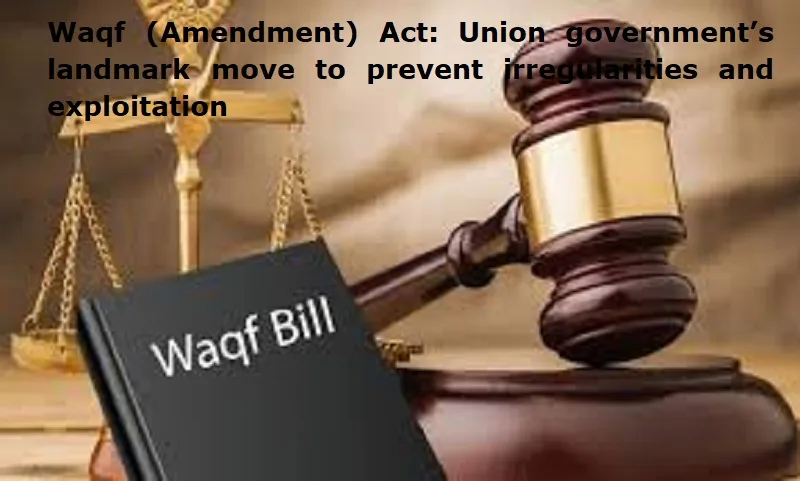
New Delhi: As per political experts, the Waqf (Amendment) Act introduced by the central government, under Prime Minister Narendra Modi’s leadership is a landmark move to prevent irregularities and exploitation. The Waqf (Amendment) Act, 2025 is a landmark move to curb corruption and mismanagement in religious endowments. The Act ensures transparency, fairness, and the proper use of properties meant for public welfare.
Waqf refers to personal property-movable or immovable-donated by Muslims for religious or charitable use. For decades, the system operated with minimal oversight, resulting in rampant irregularities and exploitation. The BJP-led government has now brought waqf boards under the purview of good governance.
Earlier, Waqf Boards operated as closed-door fiefdoms, declaring any land as waqf property without due process. BJP has put an end to this with the repeal of Section 40 – a provision that gave arbitrary powers to Waqf Boards, often misused by vested interests. Now, there will be no backdoor land grabs in the name of religion.
Also Read: Asus introduces upgraded ExpertBook P Series laptops in India
One of the most significant changes brought about by the Waqf Amendment Bill is the rationalisation of the powers previously held by the Waqf Boards. Under previous legislation, Waqf Boards enjoyed extraordinary powers that were often misused. By repealing Section 40 of the old Waqf Act, which allowed Waqf Boards to unilaterally declare properties as waqf, the new Bill introduces checks and balances to ensure fair governance.
The Bill enforces financial scrutiny and digitisation of Waqf assets, ensuring that the poor and backward sections of the Muslim community – like the Pasmanda Muslims – finally benefit. The inclusion of non-Muslim members in State Waqf Boards and the Central Waqf Council is another feature of the Waqf Amendment Act.
Another pivotal provision in the Bill is the explicit protection of government properties. By granting the government the authority to reclaim such lands, the Act safeguards public assets from unjust claims.
The act also explicitly protect the land owned by tribal communities, ensuring that their interests are not compromised. By preventing waqf claims on such lands, the Bill takes a bold stance that amplifies the rights of tribal communities in Indias.
Meanwhile, opposition parties are criticizing the act and are conducting protest all over the country. In Murshidabad in West Bengal, the protest turned violent and allegedly left three people dead.

Post Your Comments